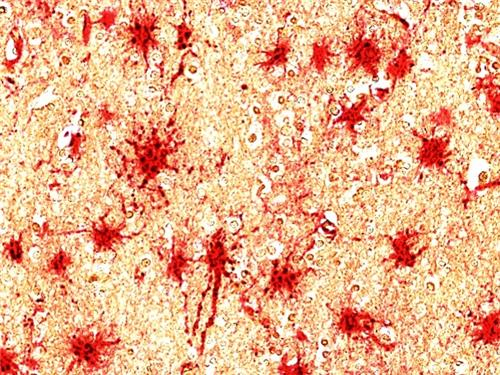![C8-gamma protein (black) with increased expression in astrocytes (red) in the brain of dementia patients. [그래픽 석경호·류훈 교수]](https://i0.wp.com/pds.joins.com/news/component/htmlphoto_mmdata/202101/06/93333dd8-72fd-4cec-b73f-3289e068de2d.jpg?w=560&ssl=1)
C8-gamma protein (black) with increased expression in astrocytes (red) in the brain of dementia patients. [그래픽 석경호·류훈 교수]
Minor brain inflammation immediately recovers, but if excessive, it causes irreversible brain damage, causing degenerative brain diseases such as dementia. Researchers in Korea have discovered a protein that inhibits brain inflammation.
The Korea Research Foundation announced on the 6th that a joint research team at Kyungpook National University Medical School, Korea Institute of Science and Technology, and Korea Brain Research Institute discovered the protein’C8-gamma’ that suppresses brain inflammation, which is the cause of dementia.
They confirmed that the concentration of C8-gamma protein was higher than that of the normal group in brain models of animals with brain inflammation or dementia and patients with dementia. In addition, it was found that acute brain inflammation induces C8-gamma secretion by stimulating astrocytes that help neurons survive and activate.
Increased expression of C8-gamma decreases the activity of microglia, which produce substances that promote inflammation. That way, the inflammatory reaction in the brain is reduced and the symptoms of dementia are also relieved.
The research team also confirmed that the C8 protein exists outside the brain as a C8-complex in which alpha, beta, and gamma are combined, but inside the brain, astrocytes secrete only the C8-gamma protein in an independent form.
“C8-gamma protein is a protein that is specifically expressed only in the brain, and will contribute to the diagnosis of dementia and the development of a therapeutic agent,” said Seok Kyung-ho, a professor at Kyungpook National University, who conducted the research.
Meanwhile, the results of this study were published in the international journal’Brain’ on December 31st last year.
Reporter Seok-Hyun Ko [email protected]
